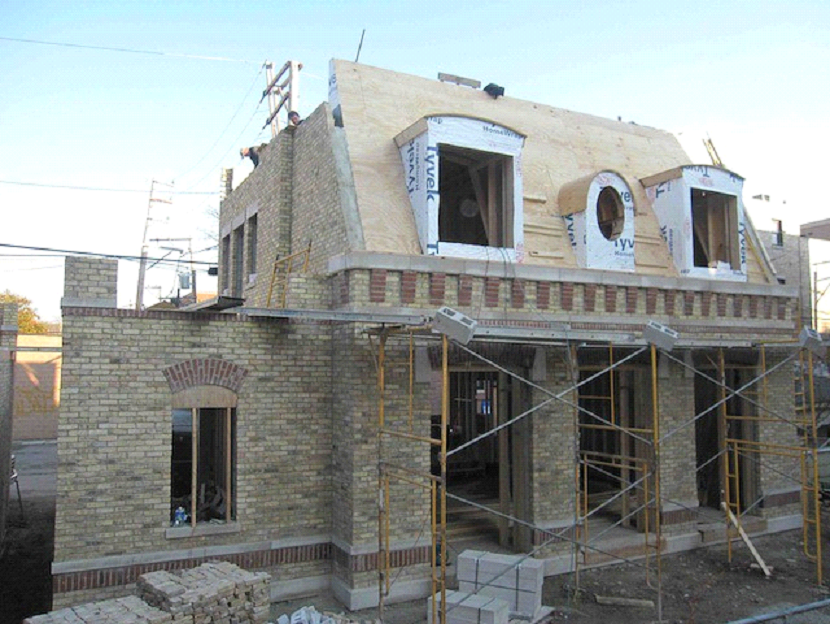Tuesday, November 19 2019
1. Enrolment in MSP remains mandatory for all BC residents. If you are not enrolled, you can submit an application at 2. Elimination of MSP does not forgive you from paying outstanding premiums owed. So make sure you are up to date with your payments for premiums due before Dec 31st, 2019 3. MSP beneficiaries must keep their MSP account information current. If your address or family structure changes, notify Health Insurance BC within 10 days. Visit addresschange.gove.bc.ca or gov.bc.ca/managingyourMSPaccount. For more information please visit: gov.bc.ca/MSP/premium-elimination Monday, August 12 2019
GST is applied on the sale of every newly constructed home. Remittance of the GST to the government is the responsibility of the seller, who's to charge the payable amount to the buyer as an addition to the purchase price. The seller is also able to claim the GST paid on expenses related to the property.
In cases where the purchased house is to be used as a primary place of residence, a partial GST rebate can be applied. The bottom line is that GST is applicable to every new home sale.
The area most people find confusing is that of renovated buildings and the applicable GST rules.
How does the CRA interpret renovation as it applies to buildings and GST? When a house has been renovated such that it looks new, what GST rule is applicable?
This blog post will try to give answers to all these questions.
We'd start off by trying to get a clear understanding of how the CRA determines the status of a house (new or old) as regards GST payment. And to do that, we'd first have to dissect and understand the meaning of a key phrase that holds all the answers we need - substantial renovation.
What is Substantial Renovation?
A residential complex that has been substantially renovated is accorded the same GST treatment as a new building.
In this case, a residential complex is defined as a building or parts of a building that's primarily occupied by the individual owner or his/her family members.
So what does it mean to substantially renovate a building?
According to the official website of Canada, “substantial renovation” means:
"The renovation or alteration of a building to such an extent that all or substantially all of the building that existed immediately before the renovation or alteration was begun, other than the foundation, external walls, interior supporting walls, floors, roof and staircases, has been removed or replaced where, after completion of the renovation or alteration, the building is, or forms part of, a residential complex."
The website still goes on to state that:
"Generally, all or substantially all, is interpreted as meaning 90% or more."
Now, that sounds complex. Let me break it down into simpler bits that could be easily understood.
Think of a building made up of a living room, kitchen and five bedrooms. If just one or two of the rooms out of over seven or so rooms in this building is substantially renovated (such that drastic changes are made).
It doesn't matter how expensive this renovation was, the entire house won't be viewed as if it was substantially renovated. And it won't pass as a new house that needs full GST payments - as it doesn't meet the 90% or more clause.
In a similar way, if a tonne of cash was spent to renovate the roof, staircase, external walls and foundation, but much wasn't spent to renovate much of the internal part of the building, the house would still not be seen as substantially renovated. No full GST payments here too.
Apart from the percentage of rooms covered, there are also other "fair and reasonable methods" that can be applied to determine if a building has been substantially renovated. Some of which include square footage renovated, compared to the total available floor space; square footage of wall and floor space renovated, compared to total available wall and floor space; etc.
All of this information is available in an (almost) easy to understand form concerning other scenarios like conversion, mixed-use buildings, guest/granny suites, major additions zee and the likes on the Canadian official site.
Let's Help You
If you're confused about how and if GST is applicable on a property being developed for resale, I would be happy to help. Call 778.801.5789 or email info@bloomaccounting.ca Saturday, August 10 2019
If an employee worked on a statutory holiday, does he/she receive statutory pay? The answer is not always, and depends if the employee is eligible.
In order to qualify for statutory pay rates both of these conditions must be met: 1) Must have been employed for at least 30 days before the statutory holiday; AND 2) Must have worked at least 15 of the 30 days before statutory holiday For example, a part-time employee who worked less than 15 days out of the 30 days before the holiday and ended up working on the statutory holiday would be paid at normal rates and not qualify for statuatory rates.
How Much is Statutory Pay? All eligible employees receive an average day's pay regardless if they worked on the statutory holiday. So if they did not work on the statutory day, they receive a day of paid time off. If an employee worked on the statutory holiday, he/she should receive an average days pay PLUS 1.5 times wages for the day. For example if Margaret's regular rate is $20 / hour and she met the eligibility requirements above. On Canada Day she worked 8 hours. Her Statutory Pay is calculated as follows: List of Canadian holidays in 2019
|
|












